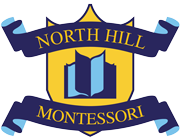“I think that’s what most universities are looking for: more enthusiasm toward the things that are great in life,” the 15-year-old said. “Academics will take you further than sports will because not many people can have a career being a professional football player.”
The increased interest in summer school has come with a hefty price tag. In British Columbia, the Ministry of Education has fully funded summer school since 2008. Classes that once cost secondary students $200 a pop are now covered by the province.
Many private-school students have enrolled in classes through the public system because their schools don’t offer summer sessions, Mr. Paul said.
In 2007, the pilot year of the B.C. government-funded program, 1,165 students enrolled in the summer session at a cost of $1-million to the ministry. But this year, with the summer program in operation for four years, enrolment has soared to 46,466 at a cost of $13.9-million.
Because summer school is fully funded in Ontario as well, from 2003 to 2007 the main focus of the Toronto District School Board’s summer programming was remedial education, said Judy Whitfield, the central co-ordinating principal of the board’s continuing education program. But after the board introduced new programs to allow students to recover credits during the regular school year, it was able to answer the long-standing demand for “reach ahead” education – students taking classes for the first time.
“Enrolment in full-credit courses in 2007 basically tripled,” she said. Demand was so great for Grade 12 English classes that the board has limited registration to those who need it in their final year for graduation. The board couldn’t find enough teachers qualified to teach the course to offer it to all the students who were interested.
This is 16-year-old Sophie Guo’s second year in summer school in Vancouver and she says she prefers the study environment in the summer to the one during the regular school year.
“I think most people who take summer school are kind of, like, overachievers. They tend to work very hard. The ones I see in regular school, they’re just trying to not fail the class,” Sophie said. She plans to follow in her mother’s footsteps and study medicine.
There are social perks, too. Rather than vegging in front of the TV as she had done in previous summers, (“This is kind of embarrassing, but I liked to watch the Family Channel,” Sophie confesses), she has made friends with students at other schools.
But what is lost when kids elect to take summer classes for no reason other than to get ahead?
Kathy Buckworth, a Mississauga, Ont.-based parenting expert and author of six books, questions whether the rising popularity of summer school is entirely a good thing.
It’s justifiable for a student who needs to raise their grades for entrance into post-secondary programs, she said, but “if they’re only in Grade 9, I really don’t get the point of it.”
Time off in the summer is good for kids, she said. Camps, travel and sports offer learning opportunities outside of the classroom.
“If you’re constantly going back to school to up your grades, either doing a summer job or even volunteering is a way to expand your scholastic resumé as well besides just grades,” she said.
In the Stojanovski family, Chris’s desire to enroll in summer school didn’t sit well with his parents initially. They thought it was only for kids who had missing credits or had failed classes.
“At first we tried to discourage him,” said his mother, Mila. “You don’t need [it]. You’re good at school.”
But they relented. Ms. Stojanovski wakes up early each morning to drive her son across town for summer school. She and her husband even moved a vacation to the Dominican Republic from July to August to accommodate their son’s ambitions.
While he’ll miss out on time with his friends this summer, Chris said he will have the last laugh.
“Overall, it’s going to pay off when they’re all frustrated with their English program and I’ve already completed it.”
BY THE NUMBERS
40-fold increase
Enrolment in the Vancouver Board of Education’s summer session increased dramatically after the province began funding classes in 2008. It was at 1,165 in 2007 and soared to 46,666 in 2012.
5,666 students
The Durham District School Board has seen a 20-per-cent increase in enrolment in summer-school classes in 2011 compared to the previous year.
85 per cent
The majority of summer students registered at the York Region District School Board this summer are taking classes for the first time rather than retaking a course because they failed or wanted to boost their mark.
27 per cent
The Calgary School Board has seen an increase in summer-school enrolment to 4,490 students this year from 3,541 students in 2008.
More Articles
- April 2017 School Newsletter
- February 2017 CASA Winter Newsletter
- February 2017 School Newsletter
- January 2017 School Newsletter
- Bilingual toddlers demonstrate greater cognitive flexibility, study finds
- Timeline of Maria Montessori’s life
- Sugata Mitra: Build a School in the Cloud
- Why kids over 5 aren’t doing enough physically
- What Children Teach Us About Peace
- Rethinking the Colorful Kindergarten Classroom
Open House
Wednesdays 9:30am to 11:00am
Contact Details
- 10131 Bayview Ave., Richmond Hill ON, L4C 2L4
- School: 905-508-5444
- Director: 647-219-6521
- info@northhillmontessori.com
